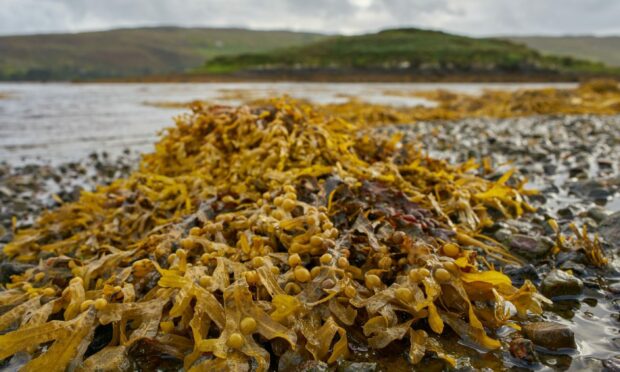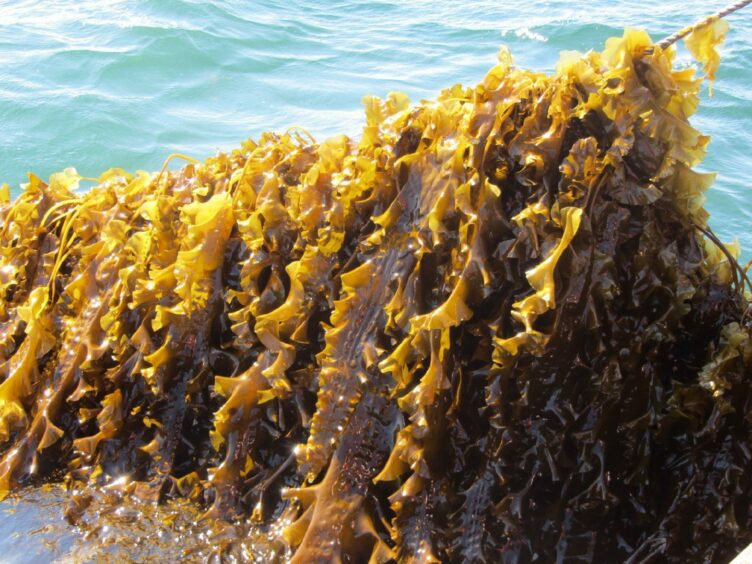Cattle on British and Irish farms are to be fed seaweed as part of a project aimed at cutting their methane emissions by almost a third.
The trial, which is being led by academics from Queen’s University, Belfast, will involve seaweed harvested from the Irish and North seas being added to animal feed in the participating farms.
Research in Australia and the US has already indicated that seaweed feeds can lead to a dramatic reduction – up to 80% – in gases released by cows and sheep through burping and flatulence. However, those experiments have used red seaweed that grows in warmer climates.
Ozone layer
Scientists at the Institute for Global Food Security (IGFS) at Queen’s said red seaweed also contains high levels of bromoform, known to be damaging to the ozone layer.
Seaweed indigenous to the UK and Ireland tends to be brown or green and does not contain bromoform.
The IGFS academics said the homegrown seaweed also is rich in active compounds called phlorotannins, found in red wine and berries, which are anti-bacterial and improve immunity.
They said the feed could therefore have additional health benefits for animals.
The institute is involved in two projects to assess the effectiveness of the seaweed-based feed supplement for cattle.
The first is a three-year project in partnership with the UK supermarket Morrisons and its network of British beef farmers who will facilitate farm trials. Those trials also involve the Northern Ireland-based Agrifood and Biosciences Institute (AFBI).
The second project sees IGFS, and AFBI, join a two million euro international project – led by Irish Agriculture and Food Development Agency, An Teagasc – to monitor the effects of seaweed in the diet of pasture-based livestock.
Silage
In that project, seaweed will be added to grass-based silage on farm trials involving dairy cows in Northern Ireland from early 2022.
As well as assessing methane emissions of the beef and dairy cattle, both projects will assess the nutritional value of a variety of homegrown seaweeds, their effects on animal productivity and meat quality.
IGFS lead Sharon Huws, who is professor of Animal Science and Microbiology within the School of Biological Sciences, said she expected the combined research to demonstrate a reduction in greenhouse gas emissions of at least 30%.
“The science is there. It’s simply a matter of providing the necessary data and then implementing it,” she said.
“Using seaweed is a natural, sustainable way of reducing emissions and has great potential to be scaled up.
“There is no reason why we can’t be farming seaweed – this would also protect the biodiversity of our shorelines.
“If UK farmers are to meet a zero-carbon model, we really need to start putting this kind of research into practice. I hope IGFS and AFBI research can soon provide the necessary data and reassurance for governments to take forward.”
Net-zero
Morrisons supermarket plans to be completely supplied by net-zero-carbon British farms by 2030.Sophie Throup, head of agriculture at Morrisons, said: “As British farming’s biggest customer, we’re very mindful of our role in supporting and inspiring the farmers we work with to help them achieve goals in sustainable farming.
“By supporting this research at Queen’s and AFBI, we are trialling this natural approach to reducing environmental emissions and improving the quality of beef products.”

